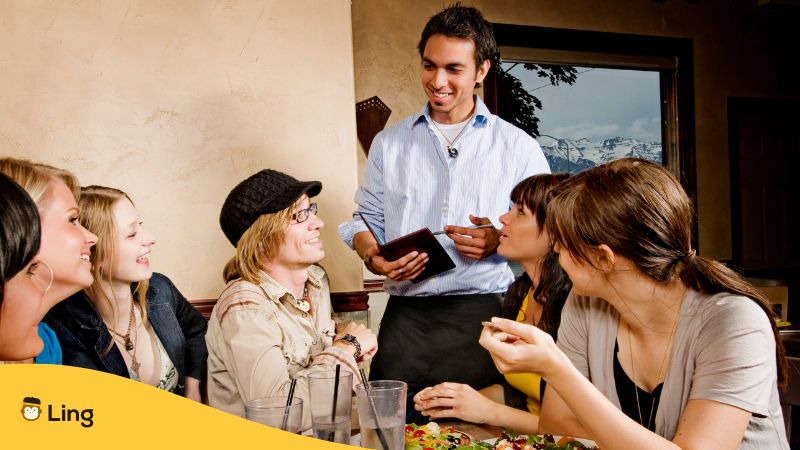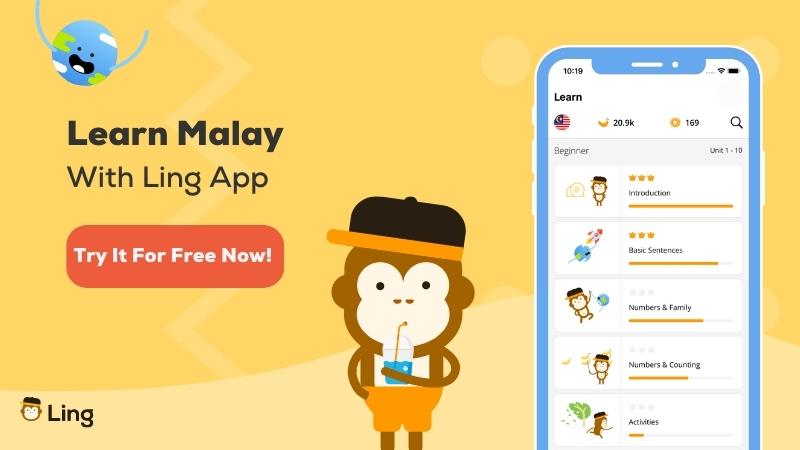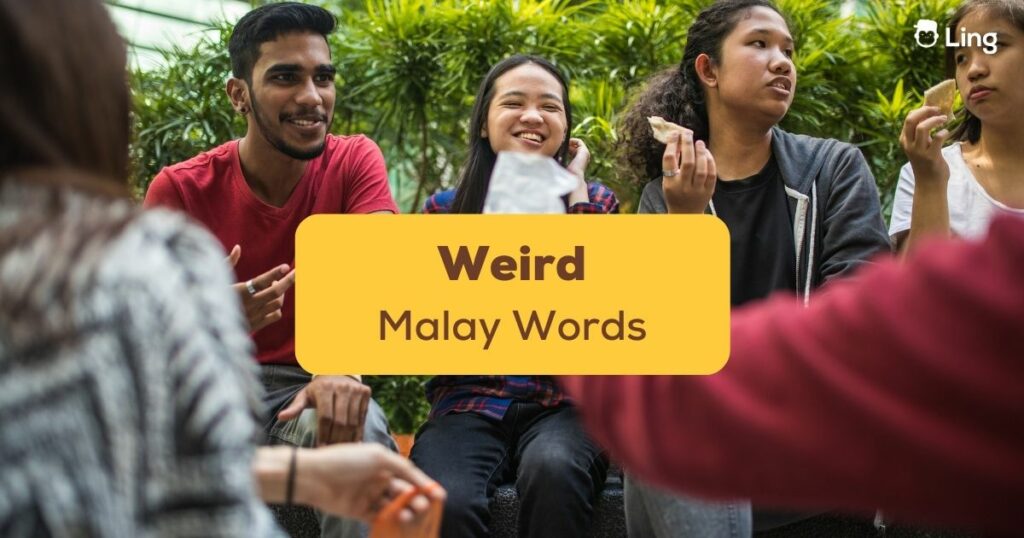Hey Leng Zai/Leng Lui! Did you come across any weird Malay phrases that you don’t understand? We get it – Malaysians typically say many uncommon words that new learners need help understanding, making some feel just a little confused.
However, that doesn’t have to be the case! We’re here today to show you some of the weirdest words you may come across. From funny Malaysian slang words to examples of how to use them in Manglish (Malaysian English way), you’re in for a treat.
So strap in, and let’s get started. Don’t FFK on us!
Weird Malay Words – Funny Malaysian Slang Words To Remember
1. Chun
Do you know how we say something is “cool” when we approve of it in English? Malaysians have something similar: chun! This Cantonese word has become part of the many slang words Malaysians use daily.
And much like the English word “cool,” chun can be used in many contexts, but usually indicates that you find something… well, cool!
Example
A: “Hey, this food is great, so chun!”
B: “Did you know we only paid RM 10 for the whole thing?”
A: “Chun, we should bring our friends here next time!”
2. Gostan

This word is one of those word choices that may sound weird but comes from a very sensible loan word! Gostan was taken from the nautical English phrase, “go astern,” which means to drive the boat or ship backward.
In Malaysia, it is usually applied as a driving term, which means to go backward. So your taxi and ride-sharing drivers will immediately understand when you say gostan!
Example
A: Pakcik, we’re going the wrong way la. Gostan, please!
3. Abuden
Sarcasm is not lost in Malay, and this word proves it. While abuden‘s etymology remains unclear, most people agree that it is at least Hokkien in origin, comprised of two Hokkien words and one English: ar (if), boh (not), and then.
These words together form a complete statement: “if not that, then what?” In Malaysian slang, it is used as a sarcastic remark when someone is stating the obvious.
Example
A: “We broke up, I feel bad.”
B: “But you cheated on her. Abuden?”
4. Boss
When Malaysians say “boss”, they don’t mean that they consider the person they are speaking to as their employer. Instead, it is used by either the workers or the customers on each other as a term of casual respect.
It works both ways – the other party will likely answer with a “boss” themselves. In Malaysia, it is not uncommon for random strangers to call each other “boss” when speaking with each other.
Example
A: “Hey boss, you’re in my parking spot.”
B: “Aiya, sorry boss, kosong-kosong, ya?”
5. Leng Chai/Leng Lui

If a Malaysian, especially from the Chinese community, calls you a leng chai or leng lui, consider yourself flattered – they’re calling you a handsome person! It is taken from Cantonese, and its literal meaning is “handsome boy (chai/zai) or girl (lui).
Some regions might pronounce it as zai, especially those closer to Chinese descent. However, most Malay and Indians in Malaysia, pronounce it as chai. Either way, it just means that someone is damn pretty, especially in Malaysia!
Example
A: “Your boyfriend is a real leng zai, ya?”
B: “Stop staring, he’s mine la.“
6. Fong Fei Kei
One of the more obscure (for foreigners, at least) Malaysian slang words in this list, fong fei kei is a peculiar one. This Cantonese phrase, which translates to “fly aeroplane”, is used to describe someone or a situation where someone backs out of an agreed meeting.
The word originates back to Hong Kong’s first plane flight. Due to inclement weather, the first flight got delayed for several days, hence the association with flakiness. Over the years, the meaning has been adopted by Malaysia. Native speakers usually abbreviate the phrase to FKK.
A: “Do you want to get bubble tea at the pusat penjaja?”
B: “You gonna FKK on me again?”
A: “Not this time! I promise!”
7. Potong Stim/Potong Steam
Potong stim (or steam, for some) means something cool, nice, or shiok has been taken from someone. An equivalent English word would be “killjoy” or “buzzkill”; the phrase is used the same way.
It translates to “cut steam”, and locals use it to express how their excitement was “cut” in some way or another. So whenever you visit Malaysia, don’t potong stim!
Example
A: “Let’s go out clubbing tonight.”
B: “Can’t la, very pokai this month. Already spent all my money.”
A: “No potong stim, I belanja you tonight!”
8. Kacau

It sounds like Lightning McQueen’s “ka-chow!” and is just as annoying! Kacau is a Malaysian term that means to disturb someone or something; basically, to annoy. But, as far as Malaysian slang words go, this is pretty tame!
A similar word in Malaysia would be kekacauan, which translates to “chaos.” Kacau is the shortened form of the word, and is even easier to pronounce!
Example
A: “Why won’t you let your cousin use your PC?”
B: “He is very kacau. Get him out of my room!”
9. Shiok/Syok
Syok nya ada Mat Kool! This term is used in many Malay-speaking countries and can even be considered the most popular among Malaysian slang words. Shiok means cool, and its origins can be traced to the Malay word seronok (enjoy.)
It is used in the way English speakers utilize the word “cool” – it is used to denote something nice, or you know… cool! It doesn’t have any deeper meaning to it, just something Malaysians use to say when they’re pleased with something.
Example
A: “Bro, check out this cool bike I got.”
B: “Very nice la, so shiok!”
10. Chin Chai
Not much to say about this one. It’s whatever.
No, really — chin chai means “whatever.” Malaysians use it how English speakers do – as an answer or a punctuation to a sentence. It’s just a matter of context! You may also see this spelled out as cin cai sometimes, depending on where you may be in Malaysia.
Example
A: “Do you want to be fondly remembered or forgotten when you die?”
B: “Chin chai. I’ll be dead anyway!”
11. Belanja

Malaysians don’t like leaving people hungry; this slang word shows just how important food is to its culture. Belanja is a term meaning “I’ve got this,” when talking about settling a bill, usually when it comes to food.
If you dine with Malaysians as a visitor, you may hear them saying “Belanja, belanja” as you get caught red-handed fiddling with your wallet. Consider this Malaysian hospitality: they can’t let you pay for something they want you to enjoy truly!
Example
A: “Excuse me boss, I’d like to pay for this…”
B: “Oh no please, let me, belanja you this time.”
12. Geng Ah
No one knows where geng ah comes from, although you shouldn’t confuse them as “gang members.” There is an extremely high likelihood that it comes from Cantonese, however. It is a term of endearment, usually applied to situations where someone did something impressive.
In Malaysia, it’s a bit like shiok – cool – but would better translate as “wow, cool!” or “wow, impressive!” Malaysian slang words such as these rely a lot on context!
Example
A: “I borrowed mum’s tudung today – does it look nice?”
B: “It goes so well with your outfit! So geng ah you!”
13. Ang Moh/Guai Lou/Mat Salleh

All these three words mean the same thing: they are used to describe Caucasians. After all, a white dude in a sea of Malaysians will stick out like a sore ibu jari (thumb). Ang Moh is a Malay term, borrowed from the Chinese ang mo, which means Westerner. Guai Lou also comes from Chinese.
The only homegrown Malay term is mat salleh, whose origin is still contested. Some experts speculate that it comes from early Malaysians’ experience with white sailors during the colonial period, from the English “mad sailor.”
Example
A: “Did you see the ang moh Fatimah was with yesterday?”
B: “I know, so geng ah her.”
14. Bo Jio
Hokkien in origin, this word embodies the spirit of the English term, “FOMO – fear of missing out”. Bo jio simply means “never invite”, and Malaysians love to use this word (usually joking) on Facebook comments on their friends who traveled or met up with familiar friends without them.
While being told bo jio does not usually lead to irreparable trouble (a friendship being over, for example) most people would do well to remember to invite their friend next time.
Example
A: “We went to the beach yesterday.”
B: “Why bo jio la?”
A: “Because you FFK last time!”
15. Walao Eh
Walao eh, or sometimes just walao, is an expression of surprise, awe, or shock – depending on the intonation with which it was pronounced. The closest English translation would be how we say, “Oh my god!” as an expression!
In Malaysia, people usually say this when something sends chills down their spines: huge sales, cheap flights and accommodations, or even just having a delicious teh tarik -they’ll likely be saying walao eh!
Example
A: “Walao eh, what bad weather!”
B: “I know, it’s been hujan lebat all week la.”
16. Yum Cha
Malaysians love to eat and drink together, and this is another one of those Malaysian slang words that reference how much Malays love food. Yum cha is a Cantonese word that translates to “drink tea.”
In Malaysia, it is used in people’s everyday lives as an invitation to have snacks or hang out, usually where there’s food. So people would head to their local mamak to socialize, drinking Chinese tea and eating tons of dim sum!
Example
A: “Work’s finally over!”
B: “Yum cha? I want some dim sum!”
Malaysian Slang Words And Their Translations
That was a lot of words we covered, so let’s list them all down before you forget:
| English Meaning | Malay Word/Phrase | Pronunciation |
| Cool/Cute, general approval | Chun | choon |
| Go backward | Gostan | go-stehn |
| Stating the obvious | Abuden | aah-boo-then |
| Term for literally everyone | Boss | bohss |
| Handsome guy/girl | Leng Chai/Leng Lui | lahng-chay/lahng-loowee |
| Flaking out | Fong Fei Kei/FFK | fawng-fay-kay |
| Killjoy | Potong Stim | paw-thong steem |
| Annoying thing | Kacau | ka-chow |
| Also cool | Shiok | shawck |
| Whatever | Chin Chai | chin-chay |
| My treat | Belanja | buh-lahn-jah |
| Impressive | Geng Ah | gehng-ahh |
| FOMO/No invite | Bo Jio | bow-jeeow |
| Let’s eat/hang out | Yum Cha | yum-chaa |
These words will help you sound more local when practicing Malay in Malaysia! And speaking of which, have we got something you’ll love…
Learn Malay With The Ling App

Are you an ang moh living in Malaysia who knows no other languages? Do you love Malaysian culture and want to immerse yourself more in the language? Love learning, but feel like other learning materials are lacking depth, especially pictures? Fear not – Ling App has you covered!
We offer Malay lessons for people in every stage of learning – from beginner to advanced! We have lessons crafted by native speakers and educators that are designed to make learning Malay (and over 60+ languages!) fun, easy, and memorable!
If you want to start learning Malay, download the Ling App today for Android and iOS.


































































